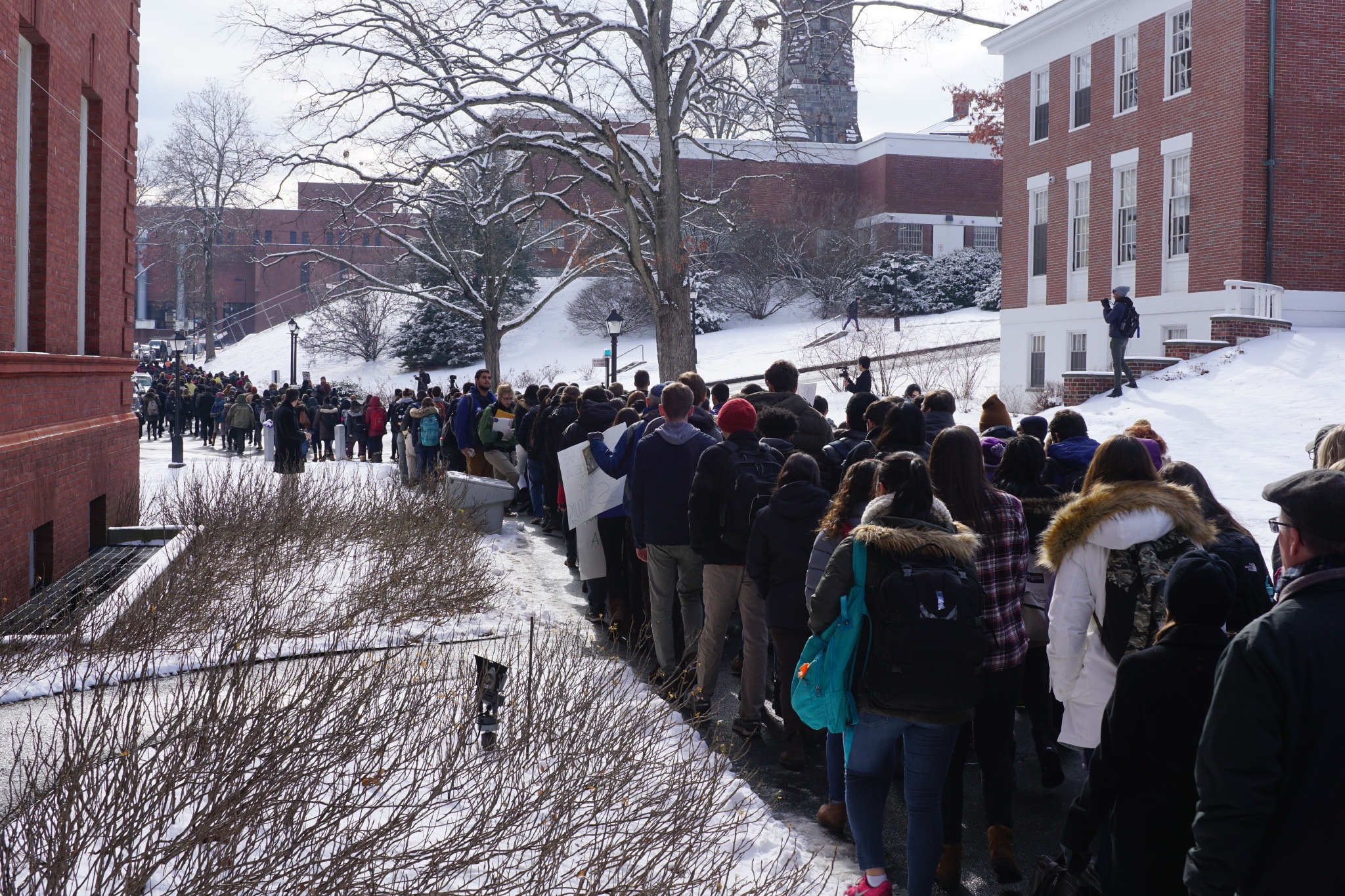

Hundreds of students, faculty and community members participated in a walkout and march on Wednesday, Feb. 1, to protest President Donald Trump’s recent executive order restricting U.S. entry and to demonstrate solidarity with members of the college community who were affected by the order. A smaller group of students also staged a sit-in in President Biddy Martin’s office.
The order, signed by the president on Jan. 27, temporarily restricts entry for nationals and refugees from seven predominantly Muslim countries, suspends all refugee admission for 120 days and indefinitely halts the movement of Syrian refugees to the U.S. The Trump administration has claimed that the act will reduce the threat of terrorism in the U.S., though most experts and other public officials who have commented on the ban disagreed.
According to The New York Times, 721 people were detained or denied entry to the U.S. by Jan. 31 because of the order, which has been met with protests across the country.
The size of the crowd grew as protesters marched at noon from Valentine Dining Hall to Converse Hall, where student speakers waited to give speeches. Led by organizer Ana Ascencio ’18, they shouted chants such as “No hate, no fear, refugees are welcome here” and “No ban, no wall, protection for all.”
Organizer Aubrey Grube ’18E denounced Martin’s statement regarding the executive order, which was emailed to students, faculty and staff on Jan. 29, calling it “abstract.”
Martin’s statement advised people from the affected countries not to travel outside of the U.S. “[We] are committed to doing everything we can within the limits of the law to protect those who will be affected by this order,” the statement read.
Students Aaron Cooper-Lob ’17 and Shreeansh Agrawal ’20E read the list of the demands made by the rally’s organizers. The demands include calls for the college to publicly condemn the executive order, provide legal and material support to members affected by the ban and recognize and fix perceived shortcomings of the International Students Office. Two letters, signed by faculty, staff and alumni, expressed their support for the protest and the leaders’ demands.
One of the protesters’ major complaints was that the college’s International Students Office had not offered enough support or guidance to international students who may have been affected by the ban. According to the organizers and some international students who were affected, the office never reached out directly to impacted students, only responding on the matter to a few individuals once they were contacted by concerned faculty members. Martin’s email claimed that college staff had contacted affected students, although it did not provide further detail.
Some international students, including Harith Khawaja ’19 and Mohamed Hussein ’18, shared with the crowd how the executive order impacted them personally in front of the assembled crowd.
Martin stepped outside Converse to address the crowd outside the building nearly an hour after the protest began. “I join you in condemnation,” she said of Trump’s executive order. She added, however, that she thought the crowd’s anger was aimed at the wrong target, and urged students to work together to fight for change on a larger scale.
Ralph Skinner ’20, who attended the rally, expressed surprise that the protest focused heavily on the college. “I expected the intention of the rally to be based in solidarity and opposing Trump,” Skinner said. “While there were certainly aspects of that, I thought too much of the core message was unfairly attacking the administration.”
The protest ended shortly after Martin spoke. The list of demands has since been published and circulated on social media by students, but the college has not yet issued a formal response. According to the Facebook page “Not Under My Watch,” which the organizers have been using to provide updates and information about the rally, the sit-in will start again on Thursday, Feb. 2, and continue until the administration meets the organizers’ demands.